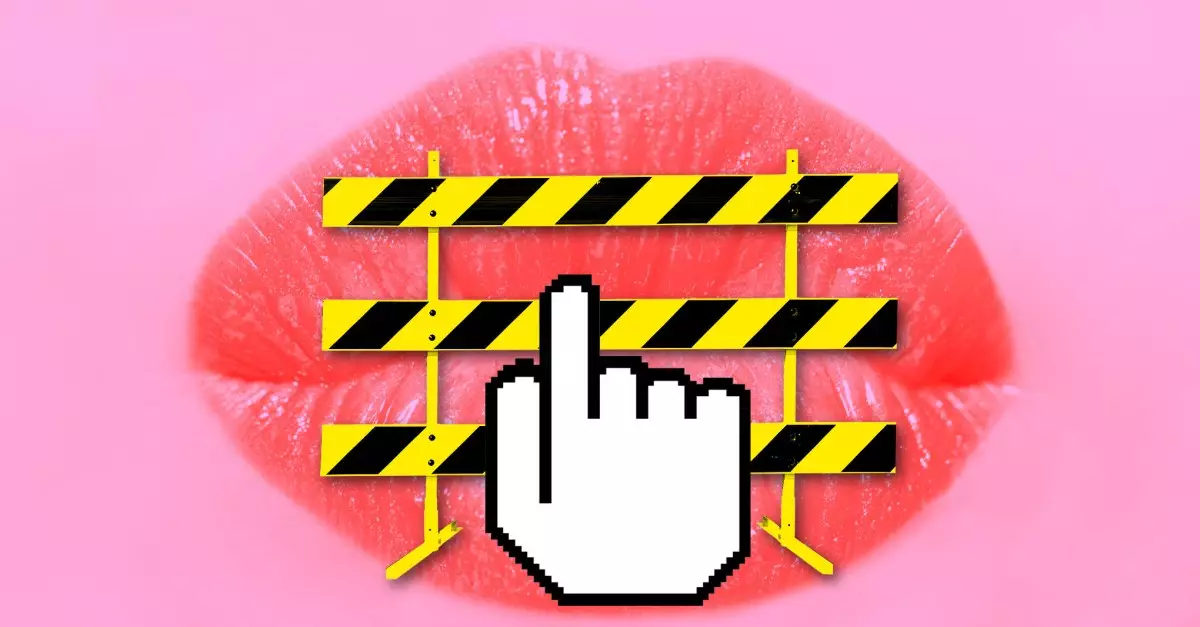In recent years, the gaming industry’s landscape has shifted dramatically, not because of technological advancements or creative innovation, but primarily due to the growing influence of payment processors and financial institutions. Platforms like Itch.io and Steam, which once championed indie developers and diverse content, are now increasingly dictated by the stringent policies of credit card companies and payment gateways. This trend reveals a troubling reality: economic interests and regulatory compliance are wielding unprecedented power over digital expression, stifling diversity and limiting creators’ freedoms.
The core issue stems from the dependency on payment processors such as Visa and Mastercard, which impose strict content restrictions to mitigate risks associated with sensitive or controversial material. These financial gatekeepers are motivated by concerns over legality, morality, and brand reputation, but their influence often extends well beyond these concerns, encroaching on creative autonomy. As a result, platforms must conform to these external pressures, often at the expense of their community’s interests and the principles of open expression.
The Consolidation of Censorship: From Steam to Itch.io
The recent actions by Itch.io exemplify this unsettling trend. Once celebrated for its support of independent developers pushing boundaries, the platform has abruptly deindexed adult content, citing compliance issues with payment partners. Creators found themselves blindsided, left without warnings or clear guidelines on what is permissible. This sudden censorship illustrates how financial compliance takes precedence over the platform’s original mission to promote diverse and unconventional gaming content.
Steam’s similar crackdown on adult titles reveals a pattern: platforms are no longer solely owned by developers or communities but are increasingly controlled by external economic forces. The broadening reach of credit card rules and platform policies demonstrates how the pursuit of risk management and legal clearance can suffocate niche markets and artistic experimentation. It raises vital questions about the future of digital freedom—are we witnessing the gradual suppression of dissent and taboo-breaking art in favor of sanitized, merchant-friendly content?
The Cultural Implications of Financial-Driven Censorship
The consequences extend beyond the mere loss of individual titles. When platforms capitulate to financial pressures, they inadvertently reinforce a sanitized narrative that excludes complex, diverse, and provocative content. This affects not just creators but also consumers who seek a variety of voices and experiences. The digital age promised democratization of content creation; instead, it increasingly resembles the corporate-controlled entertainment mainstream, filtered for maximum marketability and minimal controversy.
The comparison to Tumblr’s 2018 ban of adult content is apt. Tumblr’s decision, driven by credit card companies’ restrictions, resulted in a mass exodus of the user base—an ominous indicator of what could happen if the gaming and creative community do not stand against similar encroachments. These restrictive policies threaten to diminish the richness of our digital ecosystems, reducing them to bland, risk-free environments that cater solely to the lowest common denominator.
Responsibility and Resistance: The Future of Digital Content
It remains to be seen whether platforms like Itch.io and Steam will adopt clearer, more balanced policies or continue to bow to external financial pressures. Yet, the question of responsibility arises: should online platforms prioritize monetization and legal compliance over the rights of their creators? In my view, they must recognize that economic coercion should not define the boundaries of artistic freedom. Instead, they should foster resilient communities that can push back against external pressures, advocating for less restrictive policies and transparent guidelines.
The pushback from creators and audiences is vital. Digital spaces should serve as arenas for diverse voices, not just those that fit neatly into regulatory frameworks designed by financial institutions. Platforms need to resist being mere conduits for corporate compliance and become champions of free expression. This might involve developing alternative payment solutions, adopting more nuanced content policies, or advocating for regulatory reforms that prioritize artistic and cultural diversity over financial risk aversion.
In resisting these forces, the gaming community can preserve its integrity and ensure that digital creativity remains a space where taboo, controversy, and innovation coexist. Ultimately, the battle against financial censorship isn’t just about safeguarding individual titles—it’s about defending the very soul of digital culture.

